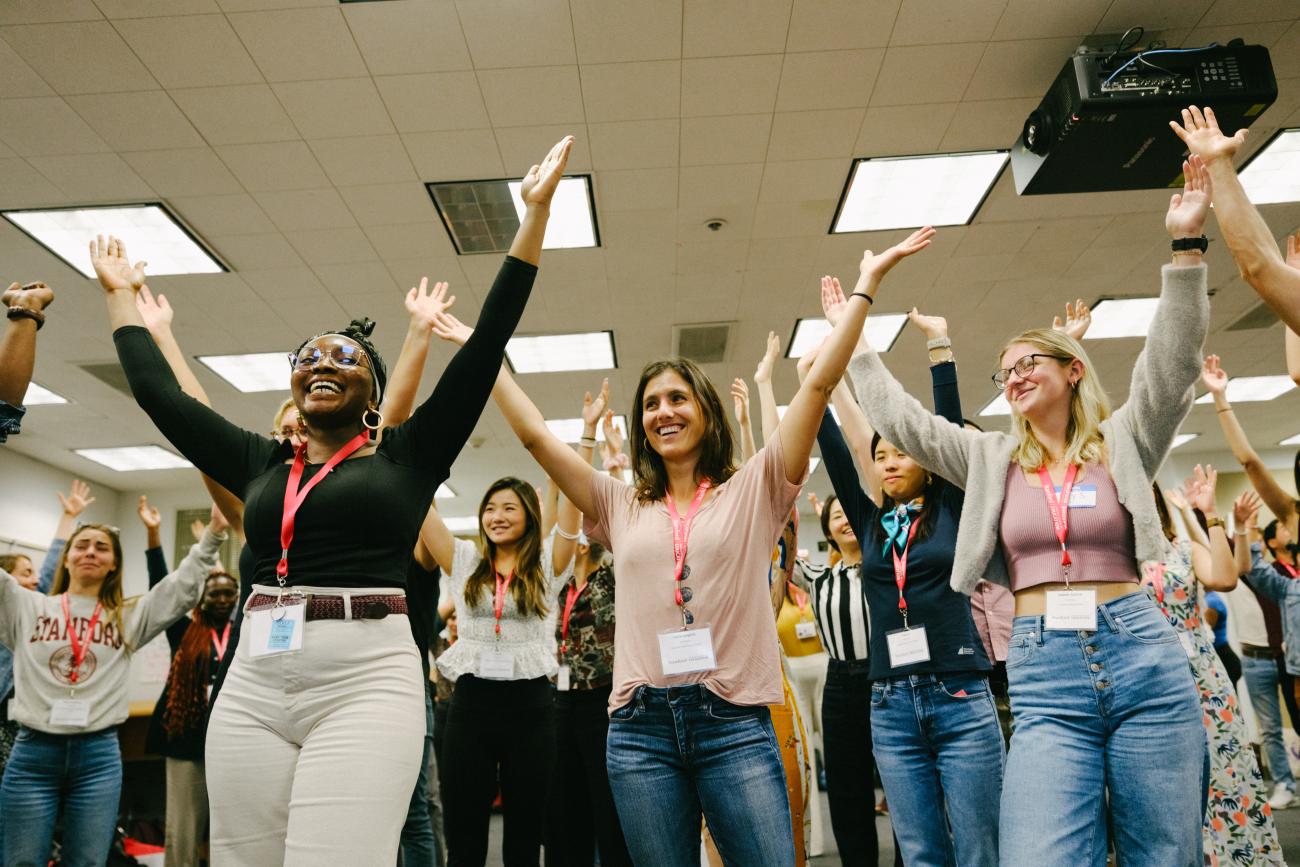
‘Passionate about making a difference’: New GSE cohort bonds over a love of learning
New Stanford Graduate School of Education (GSE) students Alexa Sparks and Sreejith Mohan might not seem to have much in common.
Sparks comes to the Education Data Science (EDS) master’s program from Omaha as a professional software developer with hopes of improving an app she co-created, which leverages peer feedback to help improve K-12 students’ writing. Mohan flew a little farther to get to campus, coming from Tamil Nadu, India, for the Learning Design and Technology (LDT) master’s program, to study and develop new ways to re-skill workers amid a fast-evolving technological landscape.
Despite their surface-level differences, the two share something common to many new and returning students to the GSE: a desire to better the world through education, and a willingness to do the work.
“One of the exciting things about coming here is that people are really passionate about making a difference,” said Sparks, who got her first introduction to the GSE through her husband, Adam, who graduated from the LDT program two years ago. “And I think education is such a clear way to make a huge impact, regardless of what you’re interested in.”
“Something I’ve come across with many GSE folks already is that they are very curious and optimistic,” said Mohan, who pivoted from engineering to education after discovering a love for teaching his coworkers. “All of them firmly believe that what we learn here can be used to change the course of the future.”
Sparks and Mohan are part of an incoming cohort of 156 new GSE students welcomed to campus during new student orientation last week, across focus areas including international education, policy organization and leadership, and curriculum studies.
The newest group includes 23 PhD students and 133 master’s students, 59 of whom started in the Stanford Teacher Education Program (STEP) over the summer.
During orientation, students in all 27 of the GSE’s PhD and master’s programs gathered to meet their peers, get to know some of their professors, and discuss goals and hopes for the upcoming school year.
“I want to encourage you, while you’re here, not to just be a student of people whose work you admire, whether that be because of their methodologies, technologies, or accomplishments,” said Anne Charity Hudley, a professor and associate dean of educational affairs at the GSE, in an opening address to new students where Dean Dan Schwartz, along with other faculty and staff, were present.
“I urge you to seek out scholars here and elsewhere who are leading the kind of lives you want to live – the people who emulate the kinds of educators you want to be, the kinds of humans you want to be.”
The all-day orientation included program seminars by department, lectures on topics such as engaging differences and fostering communication, and an improv session that encouraged loosening up and reframing failure.
“We have to shift how we feel about those moments when things don’t go well, because they are inevitable,” said Lisa Rowland, a lecturer in Stanford’s Theater and Performance Studies department, as she led students in the improv session. “In your programs, you’re going to make mistakes along the way, and whether you punish yourselves or celebrate yourselves, you will get better.
“But if you choose celebration instead of punishment, you’re more likely to keep trying new things," she said. “The path to learning is going to be more positive.”
Despite new students coming in a little awkward and unfamiliar at first, new student orientation this year served to make what can be a dividing experience — the rigors and competitiveness that can often come with graduate school and starting in a new place — into a bonding one.
“It’s very inspirational for me to see like-minded people, though we come from very diverse backgrounds, come together to learn and grow our networks,” said Mohan. “I feel that here the North Star is very clear, and it’s something that makes me a little more comfortable. These shared values, of improving education, bring me back to my home.”
Faculty mentioned in this article: Anne Harper Charity Hudley , Dan Schwartz



